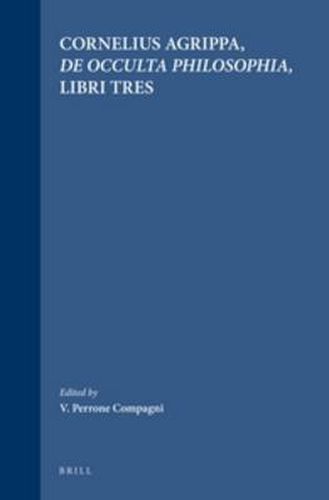Readings Newsletter
Become a Readings Member to make your shopping experience even easier.
Sign in or sign up for free!
You’re not far away from qualifying for FREE standard shipping within Australia
You’ve qualified for FREE standard shipping within Australia
The cart is loading…






Agrippa’s encyclopedic review De Occulta Philosophia expressed a fruitful contribution to the Renaissance philosophical discussion concerning the powers of magic and its relationship with religion. Agrippa’ s proposal for a discriminating revival of magic tied up directly both with Ficino’s and Pico’s proclamation of a new natural magic and with Reuchlin’s statement of the possible fusion of magic and religion. Agrippa aligned himself with this already widespread programme of reforming magic, but he also proposed an original approach, which broadens the ideas found in his sources of forging a much more generalized conception of magic’s potentials. This edition of De Occulta Philosophia clarifies a number of controversies about the interpretation of this magical work and, more generally, of this Renaissance magus , in whom scholarly curiosity stands side by side with a thoughtful revision of culture and a commitment, by no means superficial, to the intellectual and religious problems of his time.
$9.00 standard shipping within Australia
FREE standard shipping within Australia for orders over $100.00
Express & International shipping calculated at checkout
Agrippa’s encyclopedic review De Occulta Philosophia expressed a fruitful contribution to the Renaissance philosophical discussion concerning the powers of magic and its relationship with religion. Agrippa’ s proposal for a discriminating revival of magic tied up directly both with Ficino’s and Pico’s proclamation of a new natural magic and with Reuchlin’s statement of the possible fusion of magic and religion. Agrippa aligned himself with this already widespread programme of reforming magic, but he also proposed an original approach, which broadens the ideas found in his sources of forging a much more generalized conception of magic’s potentials. This edition of De Occulta Philosophia clarifies a number of controversies about the interpretation of this magical work and, more generally, of this Renaissance magus , in whom scholarly curiosity stands side by side with a thoughtful revision of culture and a commitment, by no means superficial, to the intellectual and religious problems of his time.